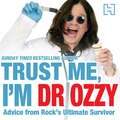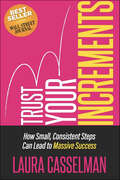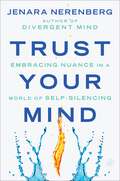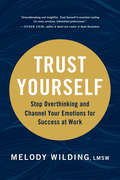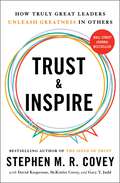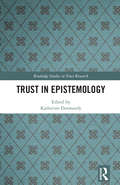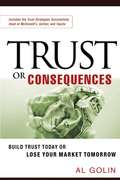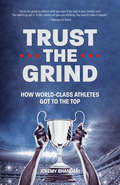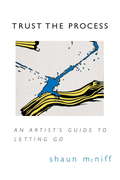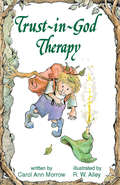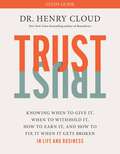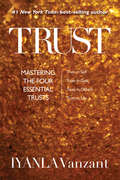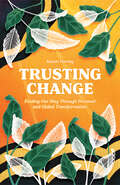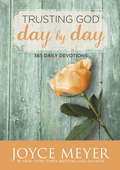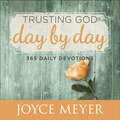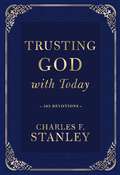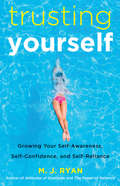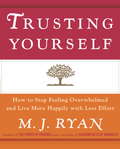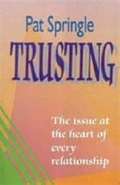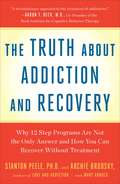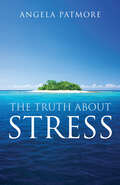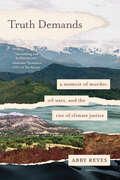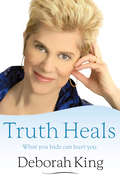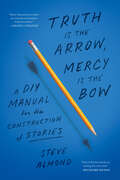- Table View
- List View
Trust Me, I'm Dr Ozzy
by Ozzy OsbourneBy rights, Ozzy Osbourne should not be alive. He spent forty years on a hell-raising, bat-biting, ant-snorting*, drink and drug-fuelled bender. He broke his neck going two miles an hour on a quad bike and died twice in a chemically induced coma. And yet - at 62 years old - he is healthier and happier than ever. He is a walking medical miracle. So who better to offer the public medical advice and support? In May 2010 the Sunday Times invited 'Dr' Ozzy to be their new Agony Uncle. Since then he has answered questions ranging from dog depression to snoring to third nipples... and has also tackled more serious questions with his trademark humour and hard-won wisdom. The column has become such a phenomenon that Dr Ozzy has now decided to gather together all his advice into one handy guide. Ozzy's motto is that if he can survive and enjoy a happy and healthy life - then *anyone* can. And enjoy a very good laugh along the way. * Yes. You read that right. Ant-snorting.
Trust Your Increments: How Small, Consistent Steps Can Lead to Massive Success
by Laura CasselmanFrom the age of 3, Laura Casselman has always had one goal—to become a Radio City Rockette. So how did her journey with dance lead her to become the CEO of a major tech company? Trust Your Increments depicts the twists and turns of Laura Casselman's career, from dancing in a one-stoplight southern town and performing on stage in the Christmas Spectacular to entering the boardrooms of NYC and spearheading JVZoo, an industry leader that has been listed on the Inc. 5000 of America's fastest growing companies four times. Written for professionals seeking to change the trajectory of their own careers, Trust Your Increments aims to show a new generation of business leaders how to get what they want with incremental, easily-applicable steps. Laura Casselman knows the unspoken role of business as an "Old Boy's Club" and details her honest experiences with male dominated boardrooms, blatant sexism, and wage inequality in the corporate environment. Her insights within Trust Your Increments empower and inspire readers to challenge the status quo and forge ahead as they foster change within the workplace.
Trust Your Mind: Embracing Nuance in a World of Self-Silencing
by Jenara NerenbergAn urgent examination of self-silencing culture and the toxic impact of groupthink, by the author of Divergent Mind and founder of The Neurodiversity Project. Nerenberg empowers readers with tools to understand the mind and navigate an increasingly polarized world, from campuses and workplaces, to the media and beyond.Connected across geography and culture via the internet, the world is both a vast, limitless landscape and an ever-shrinking echo chamber. Communication, especially discourse over free speech, is becoming increasingly divisive; one person’s right to speak comes into conflict with another seeking to prevent harm. Our tolerance for differing opinions is also narrowing. A “wrong” remark or comment, no matter how seemingly innocent, can result in banishment, and contradictory ideas spark hysteria and backlash—what is referred to as “cancel culture.” This polarization affects everyone of us—among friends and families, workplaces and communities—and threatens the fabric of society.In this timely book, Jenara Nerenberg analyzes this phenomenon of “self-silencing,” asking potent questions about how harmful groupthink has become accepted. Applying her expertise in journalism, psychology, and public health, she digs deep into urgent problems that are worsening under a culture of self-censorship, including loneliness, isolation, and polarization.But there is hope. Nerenberg offers insights for how to identify and escape groupthink and transform fear into empathy, allowing space for authentic communication that reduces—rather than causes—harm to others.
Trust Yourself: Stop Overthinking and Channel Your Emotions for Success at Work
by Melody Wilding LMSWAre you a Sensitive Striver? Learn how to get out of your own way and rediscover your sensitivity as a superpower.___ Highly sensitive and high performing?___ Need time to think through decisions before you act?___ Judge yourself harshly when you make mistakes?___ Take feedback and criticism personally?___ Find it difficult to set boundaries?It's time to Trust Yourself. Being highly attuned to your emotions, your environment, and the behavior of others can be the keys to success, but they can also lead to overthinking everything and burnout. Human behavior expert and executive coach Melody Wilding, LMSW has spent the past ten years working with Sensitive Strivers like you. In this groundbreaking book, she draws on decades of research and client work to examine the intersection of sensitivity and achievement in the workplace and offer neuroscience-based strategies you can use to reclaim control of your life and reach your full potential.Trust Yourself offers concrete steps to help you break free from stress, perfectionism, and self-doubt so you can find the confidence to work and lead effectively. You will learn how to:• Achieve confidence and overcome imposter syndrome.• Find your voice to speak and act with assertiveness.• Build resilience and bounce back from setbacks.• Enjoy your success without sacrificing your well-being.If you're an empathetic, driven person trying to navigate your career and learn how to believe in yourself in the process, Trust Yourself offers the mindset and tools to set you on the path to personal and professional fulfillment.The perfect book for:• Those who identify as highly sensitive• Anyone who overthinks or struggles with work stress and burnout•Corporate professionals of all levels• Managers, leaders, and executives• Life, career, and leadership coaches
Trust and Inspire: How Truly Great Leaders Unleash Greatness in Others
by Stephen M.R. CoveyFrom the bestselling author of The Speed of Trust, a revolutionary new way to lead, deemed &“the defining leadership book in the 21st century&” (Admiral William McRaven, author of Make Your Bed) that &“every parent, teacher, and leader needs&” (Esther Wojcicki, author of How to Raise Successful People).We have a leadership crisis today, where even though our world has changed drastically, our leadership style has not. Most organizations, teams, schools, and families today still operate from a model of &“command and control,&” focusing on hierarchies and compliance from people. But because of the changing nature of the world, the workforce, work itself, and the choices we have for where and how to work and live, this way of leading is drastically outdated. Stephen M.R. Covey has made it his life&’s work to understand trust in leadership and organizations. In his newest and most transformative book, Trust and Inspire, he offers a simple yet bold solution: to shift from this &“command and control&” model to a leadership style of &“trust and inspire.&” People don&’t want to be managed; they want to be led. Trust and Inspire is a new way of leading that starts with the belief that people are creative, collaborative, and full of potential. People with this kind of leader are inspired to become the best version of themselves and to produce their best work. Trust and Inspire is the solution to the future of work: where a dispersed workforce will be the norm, necessitating trust and collaboration across time zones, cultures, personalities, generations, and technology. Trust and Inspire calls for a radical shift in the way we lead in the 21st century, and Covey shows us how.
Trust in Epistemology (Routledge Studies in Trust Research)
by Katherine DormandyTrust is fundamental to epistemology. It features as theoretical bedrock in a broad cross-section of areas including social epistemology, the epistemology of self-trust, feminist epistemology, and the philosophy of science. Yet epistemology has seen little systematic conversation with the rich literature on trust itself. This volume aims to promote and shape this conversation. It encourages epistemologists of all stripes to dig deeper into the fundamental epistemic roles played by trust, and it encourages philosophers of trust to explore the epistemological upshots and applications of their theories. The contributors explore such issues as the risks and necessity of trusting others for information, the value of doing so as opposed to relying on oneself, the mechanisms underlying trust’s strange ability to deliver knowledge, whether depending on others for information is compatible with epistemic responsibility, whether self-trust is an intellectual virtue, and the intimate relationship between epistemic trust and social power. This volume, in Routledge’s new series on trust research, will be a vital resource to academics and students not just of epistemology and trust, but also of moral psychology, political philosophy, the philosophy of science, and feminist philosophy – and to anyone else wanting to understand our vital yet vulnerable-making capacity to trust others and ourselves for information in a complex world.
Trust or Consequences: Build Trust Today or Lose Your Market Tomorrow
by Al GOLINThis book shows what makes such strategies work, and reveals the eye-opening results of a survey of over 700 business professionals.The recent rash of corporate scandals?and the ensuing financial ruin of companies and their stockholders -- proves that even the bluest of blue chip businesses cannot bank on the blind faith of consumers and investors. More than ever, corporations must rebuild, restore, and strengthen bonds of trust.Al Golin has helped create trust strategies for global business leaders including The Walt Disney Company, Hewlett-Packard, McDonald&’s, Toyota, Owens-Corning, and many others. In Trust or Consequences, he reveals how to:create an effective trust strategydetermine the impact of trust issues on stakeholdersassess trust-building performance and calculate the difficulty of restoring trustcreate a "trust bank" for saving deposits of good will to draw on as neededThis invaluable resource offers tools for identifying trust opportunities, as well as numerous inside accounts of trust-building successes and failures by high-profile organizations and leaders. Filled with provocative ideas about why many companies overlook trust issues, Trust or Consequences brings the subject to center stage -- where it must remain if companies are to regain stakeholder loyalty and competitive advantage.
Trust the Grind: How World-Class Athletes Got To The Top
by Jeremy Bhandari“To all the young athletes out there looking for motivation, and a firsthand look at how myself, and 15 other well-known competitors reached the top.” —Jason Kidd, ten-time NBA All-Star, member of the Naismith Memorial Basketball Hall of FameSixteen athletes from eleven sports. Each chapter tells a different story, as each superstar shares the habit that helped them accomplish their goals and reach the pinnacle of their profession.Guaranteed to tap into your athletic edge, Trust the Grind, is made for sports fans and nonfans alike. Fans of professional athletes get an in-depth look at their heroes’ climb to the top; those less passionate about sports have the chance to read the secrets of success from some of the most talented people in the world. Both learn pivotal life lessons, and can immediately instill these traits and habits into their lifestyle.Learn the secrets behind success, and what it takes to remain on top. With Trust the Grind, you will learn about the value that comes with becoming disciplined, staying driven, setting goals, identifying your “why,” staying active and eating right, making sacrifices, obsessing over your passion, and more. Rather than harping on remarkable accolades and astonishing statistics, this story is formulated to teach individuals what it takes to be great in any desired field. It includes interviews with: Jason Kidd Chipper Jones Terrell Owens Paige VanZant Manny Pacquiao Mike Modano Jimmie Johnson Gary Player Deena Kastor Ryan Sheckler Georges St-Pierre Ryan Lochte Devin Hester Andruw Jones Luis Gonzalez Tim Hudson“A groundbreaking method to illustrate how world-class athletes found their way to the top!” —DJ Shockley, former Atlanta Falcons QB, current ESPN college football analyst
Trust the Process
by Shaun McniffWhether in painting, poetry, performance, music, dance, or life, there is an intelligence working in every situation. This force is the primary carrier of creation. If we trust it and follow its natural movement, it will astound us with its ability to find a way through problems--and even make creative use of our mistakes and failures. There is a magic to this process that cannot be controlled by the ego. Somehow it always finds the way to the place where you need to be, and a destination you never could have known in advance. When everything seems as if it is hopeless and going nowhere . . . trust the process. Shaun McNiff is internationally recognized as a founder and leading figure in the arts and healing field. University Professor at Lesley University in Cambridge, Massachusetts, he is past president of the American Art Therapy Association and the author of several other books including Art As Medicine, Trust the Process, and Creating with Others .
Trust-in-God Therapy
by R. W. Alley Carol Ann MorrowTrust in God isn't so much of a stretch when things are going well. But when life betrays us, trust is harder to muster. Join the endearing elves on these pages to build some spiritual muscle to withstand life's heavy burdens.
Trust: A Direction, Not A Destination (Osho Insights For A New Way Of Living Ser.)
by OshoIn Trust, the eleventh volume in the Insights for a New Way of Living series, Osho helps readers re-evaluate the idea of trust. We live in times where trust in old institutions and their relevance to our lives have evaporated. Religions, ideologies, political systems, morals, family, marriages—none of these traditional institutions are working anymore. Osho’s insight is that the institutions of the past have used the false substitutes of “belief” and “faith” as control mechanisms of society. Whereas authentic trust comes from within, belief systems are imposed from the outside by religious and social institutions. Osho encourages readers to rediscover and reclaim the innate trust that is born with each individual. No more demands to trust in an “other.” No more faith and belief, with their demands that we drop all questioning and doubt, but rather a willingness to honor our questions and doubts so fully that they will lead us to our unique, authentic, and individual truth.
Trust: Knowing When to Give It, When to Withhold It, How to Earn It, and How to Fix It When It Gets Broken
by Dr. Henry CloudNew York Times bestselling author, psychologist, and leadership expert Henry Cloud equips us to understand and manage trust for successful relationships through five foundational aspects. Trust is the fuel for all of life. We are wired biologically, neurologically, emotionally, spiritually, and psychologically to trust. Trust is the currency that drives every relationship, beginning with the foundational bond between infants and their mothers, extending to the trust networks that undergird every human endeavor – art, science, commerce – and binding together every relationship we have ever had or ever will have. Nothing in our world works without trust. It is tempting to think that trust is simple, that we should be able to spot a lack of trustworthiness relatively easily. But we all have our stories about misplaced trust. We either missed clear or subtle warning signs or there just were not any warning signs to see. Everything looked good on the surface, and maybe it was. But we got burned anyway. And sometimes we struggle to earn and keep the trust of those around us when trust bonds fail to form or are broken. When trust breaks down, so does our ability to move forward. Dr. Cloud explores the five foundational aspects of trust that must be present for any relationship to function successfully and helps us to understand how to implement them. He also guides us through the difficult process of repairing trust when it has been violated and broken, even when restoring trust feels impossible. Rich with wisdom drawn from decades of experience in clinical practice, business consulting and research, Trust is the ultimate resource for managing this most complex and fundamental of human bonds, allowing us to experience more fruitful and rewarding relationships in every area of our lives.
Trust: Mastering The Four Essential Trusts: Trust In Self, Trust In God, Trust In Others, Trust In Life
by Iyanla Vanzant"You just can’t trust anyone!" seems to be a constant refrain in the modern world. Indeed, learning to trust is one of life’s most difficult lessons. "That’s because trust is not a verb," says legendary life coach Iyanla Vanzant, "it’s a noun. Trust is a state of mind and a state of being."In this wise book, the New York Times best-selling author and host of OWN’s popular reality TV show Iyanla: Fix My Life reveals how to cultivate this liberating power—by exploring what trust really is, how to trust, and why to trust. She outlines the special rewards that come from mastering the four essential trusts: trust in God, trust in yourself, trust in others, and trust in life. And she challenges us to see how each of these are actually deeply interconnected.Too often our fear of whether or not we can really trust an individual or an institution and what they represent erodes our confidence and undermines our relationships. When trust is broken or there is a betrayal, it can bring us face-to-face with our shadow, revealing that someone has failed to live up to our expectations and thus "outs" our hidden beliefs. "You never get what you ask for; you always get what you expect," says Iyanla. When someone betrays our trust it reveals the high price paid for such deep disconnection.This book’s pragmatic trust-building prescriptions demonstrate how communication, consistency, and cooperation can antidote trust-destroying behaviors and revitalize us with increased authenticity, greater resilience, and renewed peace in every part of our lives.
Trusting Change: Finding Our Way Through Personal and Global Transformation
by Karen HeringMinister and award-winning author of Writing to Wake the Soul Karen Hering invites readers on the cusp of great change—which is all of us today—to explore the new possibilities emerging in our times. Whether you are living through significant personal transitions or navigating a world reshaping itself faster than ever, the book offers ten skills for living on the threshold as well as spiritual practices and inspiration for connecting with your own inner wisdom. From the first page, you’ll find a storytelling companion ready to journey with you through uncertainty and change. Hering does not pretend that change is simple. But she offers reassurance that it becomes easier to trust the more we participate in it. Sharing wisdom found in the body, in nature, and in metaphors, these reflections include creative and embodied exercises that invite readers into a larger story of change. With suggestions for using the book alone and with others, Hering reminds us that trusting change is made possible by sharing its challenges and its possibilities with others. This book is a conversation with the reader meant to also stir conversations between readers as we learn to live into and through our transformative times together.
Trusting God Day by Day: 365 Daily Devotions
by Joyce MeyerIn her dynamic new devotional, international speaker Joyce Meyer provides you with powerful 'starting points' for every day of the year. Each day's devotion is filled with practical advice from Joyce along with life-changing promises from God's Word that you can quickly and easily apply in your own life. The world wants you to place your trust in your circumstances, your success, your talents, and the opinions of others. But God has called you to rise above the world, and put your full trust in Him - to believe and apply what He's promised more than anything else. Living this way won't just happen - you have to be intentional. But where do you begin? We all need help to make good choices, to battle worry, overcome anxiety, and keep a positive attitude. Using this devotional, readers will learn to grab hold of life this way, day by day, with trust in God.
Trusting God Day by Day: 365 Daily Devotions
by Joyce MeyerA brand-new daily devotional featuring the best of number one New York Times bestselling author Joyce Meyer.In her dynamic new devotional, international speaker Joyce Meyer provides you with powerful 'starting points' for every day of the year. Each day's devotion is filled with practical advice from Joyce along with life-changing promises from God's Word that you can quickly and easily apply in your own life. The world wants you to place your trust in your circumstances, your success, your talents, and the opinions of others. But God has called you to rise above the world, and put your full trust in Him - to believe and apply what He's promised more than anything else. Living this way won't just happen - you have to be intentional. But where do you begin? We all need help to make good choices, to battle worry, overcome anxiety, and keep a positive attitude. Using this devotional, readers will learn to grab hold of life this way, day by day, with trust in God.(P)2012 Hachette Audio
Trusting God with Today: 365 Devotions (Devotionals from Charles F. Stanley)
by Charles F. StanleyTrusting God in difficult times can be a challenge, but working to grow that trust day by day brings greater joy and peace than we could ever find leaning on our own understanding. In Trusting God with Today, Dr. Charles Stanley encourages us to believe in God's love and rest in His purpose for us.This 365-day devotional from beloved author and pastor Dr. Charles Stanley will inspire you to see how God transforms our hearts and lives when we trust Him with an unknown future. Each entry in this daily devotional includes a Bible verse, a prayer, and inspirational teaching. Page by page, your soul will find rest as you remember that:No matter what is happening in the world or in your life, God is faithfulYou can release anxiety and embrace God's rest as you stop trying to figure it all out yourselfTrusting God one day at a time leads to contentment and satisfaction as He makes your paths straight Trusting God with Today makes a wonderful gift for Christmas, Easter, birthdays, and graduations, or for anyone who longs to trust God more deeply in an uncertain world today and every day.
Trusting Yourself: Growing Your Self-Awareness, Self-Confidence, and Self-Reliance
by M. J. RyanStop Feeling Overwhelmed by Life Learn how to stop your worries and self-doubt and start listening to yourself. “Trust Yourself, then your will know how to live”-Goethe. We are living in an age of constant media messages and so-called expert advice telling us to be richer, thinner, smarter, and faster. You do not have to fall victim to what others say. In her warm and inimitable way, international expert on change and executive coach M.J. Ryan guides us to look at our lives from a different perspective. To imagine what they would be like if we practiced an attitude of self-trust, if we received the gifts trusting ourselves might give us. Trusting Yourself is a book that enables you to tap into the wisdom inside yourself by cultivating self-awareness, self-confidence, and self-reliance. A life coach book with affirmations for self-esteem. Learn how to quiet the critics?inside and out?and trust yourself instead. If you accept that we learn through trial and error, if you believe that we each have unique strengths and that not one of us has to have them all, if you realize that labels only get in the way; then your self-trust will grow, your worries will shrink, and you’ll find happiness and success with a lot less effort. A Love Letter to Ourselves. An ode to what is right with us, Trusting Yourself encourages you to find the power within yourself to overcome and succeed. In Trusting Yourself discover: Positive affirmations and heart-warming anecdotes Helpful and thought-provoking quotes from renowned historical and cultural leaders of the last century Authentic and genuine wisdom that is both healing and supportive If books like Chasing the Bright Side, Girl Wash Your Face, or You are a Badass have helped you live a better life, then Trusting Yourself should be your next read.
Trusting Yourself: How to Stop Feeling Overwhelmed and Live More Happily with Less Effort
by M. J. RyanWe are flooded every day with messages from so-called experts in magazines and on TV telling us what's wrong with us. Our teeth aren't white enough, we aren't good enough lovers, we aren't exercising enough, we have ADHD. No wonder we're dogged by worry and self-doubt! Luckily, M. J. Ryan can help. As the creator of the bestselling Attitudes of Gratitude and The Power of Patience, Ryan discovered that the classic virtues can help bring peace and light to our lives. Now, in Trusting Yourself, Ryan reveals how the long-forgotten virtue of self-trust lets us feel less overwhelmed and happier every day. Trusting yourself makes choices easier, lets you express your unique talents, and gives you greater optimism and joy. How do we learn to set the critics aside and trust ourselves instead? Ryan teaches us how to start learning what is right with us. First she reveals the inner attitudes that nurture self-trust. If you accept that we learn through trial and error, if you believe that we each have unique strengths and that no one of us has to have them all, if you realize that labels only get in the way, then your self-trust will grow, your worries will shrink, and you'll find happiness and success with a lot less effort. Ryan also shares the "best practices" of those who trust themselves: Learn the way Quakers make their most important decisions by asking each other open-ended questions. When you're feeling overwhelmed by a big project, draw on the secret of time management experts and ask, What's the next actionable step? And when you make a mistake, remember that the master weavers of Persia include an intentional error in every carpet, to remind us that nothing human is supposed to be perfect. A celebration of an untapped source of personal power, Trusting Yourself helps us find more peaceful, saner lives every day.
Trusting: The Issue at the Heart of Every Relationship
by Pat SpringleAre Christians too gullible? How do you react when someone takes advantage of you? Do you 'turn the other cheek'? Or punish them? Or avoid them in the future? Pat Springle shows you a better way, and then gently probes whether relationship difficulties are effecting our view of God. Finally, can we become more trustworthy ourselves? The author is a respected writer and councelor. He is president of Baxter Press, a publisher of Christian psychology literature.
Truth About Addiction and Recovery
by Stanton PeeleA radical new approach to recovery—using methods proven more effective than medical treatment or twelve-step programs.Drawing on the latest research and detailed case studies, the authors expose the best-kept secrets in the recovery field:· Addictions—whether to food, cigarettes, sex, alcohol, or drugs—are not diseases, and they’re not necessarily lifelong problems. · Many more people give up addictions on their own than are helped by medical treatment or twelve-step programs. · Developing values, skills, and life resources enables people to quit addictions—and to shed the addict identity altogether. In their revolutionary “Life Process Program” for overcoming all kinds of addictions, the authors emphasize self-help and treatment through coping with stress and achieving one’s goals. As helpful as it is controversial, The Truth About Addiction and Recovery will forever change the way we view and treat addiction. “A classic.” —John Norcross, PhD, ABPP, Distinguished Professor of Psychology at the University of Scranton and author of Changing for Good
Truth About Stress
by Angela PatmoreShortlisted for last year's MIND Book of the Year Award, this controversial exposé of a multimillion-pound industry argues that the term 'stress', when applied to human beings, is completely meaningless. We seem to be living through an epidemic of stress. There are 15 million websites dedicated to the subject and Britain alone has over two million accredited therapists, counsellors and healers devoted to protecting us from what they claim is a debilitating disease. But is there really a stress problem? In this brilliant and provocative analysis, Angela Patmore examines the confusion and controversy surrounding the whole concept, raising important questions about the treatments and advice that offer to cure it. She argues that the health angst engendered by all this lucrative 'stress awareness' sends its victims in search of therapy and sedation and fuels an epidemic costing the UK billions. Far from helping people cope with their problems and feelings, she contends, the unregulated industry is harming them. Her conclusions suggest we need to reappraise profoundly the way we understand our own health and well-being.
Truth Demands: A Memoir of Murder, Oil Wars, and the Rise of Climate Justice
by Abby Reyes&“Essential reading, filled with exactly the kind of truth that this precarious moment demands.&” —Kaira Jewel Lingo, author of We Were Made for These TimesIn 1999, Abby Reyes lost her partner, Terence Unity Freitas, as he and two others were murdered after departing Kajka Ika—the heart of the world—of Indigenous U&’wa territory in Colombia.Imperiled by multinational oil interests, U&’wa lifeways were under attack. Terence, Ingrid Washinawatok El-Issa (Menominee), and Lahe&’ena&’e Gay (Hawaiian) arrived to listen to community needs and accompany the U&’wa. But then they disappeared. Days later, their bodies were found, bound and bullet-riddled in a cow field across the border in Venezuela.Twenty years later, Abby finds herself in Case 001 of Colombia&’s truth and recognition process. They want to know her stories. They want to know her questions. They want to know her truth demands: the fragments she&’s held for decades about the last days of Terence&’s life. Why was he taken? Who pulled the trigger? Who was really behind the killings?Plunged back into grief, ambiguity, and the unknown, Abby is called to navigate the past. Old wounds are reopened, old histories are redrawn, and fresh angers flare as she confronts the testimony of one of her lover&’s killers—and the burden that Terence unwittingly compelled her to bear. Spanning three decades and three continents, Truth Demands charts Abby&’s parallel journeys as she navigates the waters of loss, purpose, and impermanence while fighting for truth and accountability from big oil. A profound and haunting memoir, Truth Demands is an invitation into the current. It shows us how to hold fast even as we let go—holding us as we bear witness and welcome with courage and skill what the truth demands of us all.
Truth Heals: What You Hide Can Hurt You
by Deborah KingMillions of us live with chronic and debilitating pain or disease, and sadly, that number is growing every day. In Truth Heals, which was originally self-published, Deborah King, Ph.D. explores the relationship between the suppression of truth and how this later manifests into pain or illness. Using her years of experience as an expert healer, Dr. King creates a roadmap for people to learn how to recognize and release emotional blockages, share truth in a safe and healing manner, and unlock the power of truth without reliving negative experiences or causing more harm. Through client histories, celebrity profiles, and her own remarkable journey, the author demonstrates how anyone can release deep-seated layers of denial, fear, and anger in order to heal the mind and body.
Truth Is the Arrow, Mercy Is the Bow: A DIY Manual for the Construction of Stories
by Steve AlmondThe long-awaited book about the craft of creative writing from Steve Almond, beloved teacher, mentor, and author.From the acclaimed author of twelve books of fiction and nonfiction, including All the Secrets of The World and the New York Times bestsellers Candyfreak and Against Football, comes a craft book that is at once irreverent and iconoclastic. In Truth is the Arrow, Mercy is the Bow, Steve Almond employs the radical empathy he displayed as co-host (with Cheryl Strayed) of the podcast Dear Sugars to explore the joys and trials of storytelling, and to explode the myths that hold us back from writing our deepest and truest work. The book includes chapters on plot, character, and chronology, but travels far beyond the earnest intentions of most craft books. It includes essays on humor, sex, writer&’s block, and the dividends of failure, as well as prompts to generate new work and a rollicking Frequently Asked Questions section. You&’ll never think about writing the same way again.
